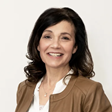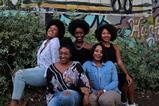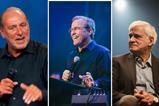Ann-Louise Graham considers how well we know the Bible and ponders whether the Church and its women’s ministries are to blame
Before we can attempt to measure biblical literacy, we must first define what it means. According to Natalie Brand, a British theologian and author with a PhD in systematic theology, Christian women tend to read more than men in her experience. As she explains: “Women are just hungry for the word, and they’re buying Bible studies after Bible studies and books after books. They’re overly resourced. I’m on Instagram and I can see all these women hungry for these things like the podcast that’s in the UK: ‘Two sisters and a cup of tea’.”
However, Brand acknowledges that determining the biblical literacy of Christian women would require extensive research, which has not been conducted. As she admits: “In a sense, that question cannot be answered.” Furthermore, Brand is quick to point out that increased reading does not necessarily equate to biblical literacy.
Bible teacher Jen Wilkin acknowledges that while Christian women have a strong appetite for resources, not all of them focus on building biblical literacy. Many of the resources are instead topical or devotional in nature. As an English major with 25 years’ experience teaching the Bible in the local church, Wilkin has a very particular definition of ‘Bible literacy’ that differs from the more general term ‘biblical literacy’.
Wilkin explains: “I think many people would consider themselves biblically literate in the sense that they know about the Bible and some of the major stories. They may even have a general sense of the overall biblical narrative. But when I say ‘Bible literacy’, I mean being able to walk through the contents of a specific book of the Bible, like Genesis, in detail. Or being able to discuss what’s known about the Church in Ephesus based on the letter written to them. I’m not saying you need comprehensive knowledge of every book right now, but you should be actively working toward that level of familiarity with the Bible.”
If we adopt Wilkin’s definition of biblical literacy as “comprehensive knowledge of every book”, or at least working towards that goal, many of us might have to concede that we are not ‘Bible literate’.
Brand, similarly, argues that as women we should aspire to much more than Bible familiarity: “as somebody who is teaching the Bible to women in the Church, I would be, [asking] are they understanding an arc of redemption?…If I’m looking at the women that I’m writing to…it’s [about asking]: do they understand this whole story, from Genesis to Revelation?”
Despite their sense that interest in Bible studies has increased over the past ten years, both Brand and Wilkin paradoxically believe that women’s biblical literacy is worse than a generation ago, despite the availability of more educational resources.
Why is biblical literacy decreasing?
Jen Wilkin argues that simply providing more Bible study resources is not the solution, as we must first address some fundamental issues. Notably, she suggests, we treat the Bible as a book about ourselves, rather than about God. Therefore, the priority is not just to correct our limited biblical knowledge, but to realign our motivations for studying scripture. “The Bible is first and foremost a book about God. It doesn’t mean that it isn’t also about us. It certainly is. But to borrow from John Calvin, there’s no true knowledge of self apart from the knowledge of God.”
Wilkin also says that sometimes women’s ministries have encouraged an emotional rather than intellectual approach to the Bible: “I will meet women who spend their entire week in jobs that require a great deal of them intellectually, but when they come to church on Sunday, they think they’re supposed to take their brain out, set it over to the side and turn on ‘the feels’. And, you know, we live in a therapeutic age. We live in an age that will tell us, whatever your religious practice, it’s for you to self-actualise.”
Brand also thinks that we risk coming to the Bible as consumers. “I guess there’s a lot of things contributing to this, but sometimes we approach God [with] a consumer mentality…and part of that, perhaps comes out of the womanhood movement [but] if we come to God in biblical womanhood, we’ve already started with ourselves. We’re coming to God, not as sinner, but as woman.”
She points out that the context in the UK is very different from that of the USA. And that the problem is exacerbated by our post-secular age, where many churches are barely surviving, and the Christian faith receives little public attention. Brand also highlights a generational difference – grandmothers had the scripture “drummed into them”, while modern women are expected to juggle children, home and work, leaving little time to study the Bible.
Unsurprisingly, both Brand and Wilkin pay a lot of attention to the types of resources women consume. With Wilkin comes a caution towards devotional and topical content, which she says definitely have value, but that they shouldn’t be our main diet.
Brand, meanwhile, suggests that women are starting to realise that it’s in the depths of scripture that we find real help and comfort: “We can learn about doctrine, and then we can appropriate it. You know God’s immutability, how he doesn’t change, how Christ is both 100 per cent God and 100 per cent man, the hypostatic union…that’s going to get you through the week.”
Furthermore, Brand notes that men are sometimes mentored in ways that women are not, while Wilkin observes that women’s ministry can be isolated from the broader disciple-making structure of the Church: “It is important, first of all, to understand that women’s ministry is not something that happens off to the side in the Church. It should be viewed as a part of the scope and sequence of adult discipleship.”
What can be done?
Addressing the issue of women’s biblical illiteracy can feel overwhelming when considering the numerous potential contributing factors. However, upon speaking with Wilkin and Brand, I was left with the impression that the solutions, while not easy, are refreshingly straightforward.
If women’s ministry has sometimes been part of the problem, it can also be part of the solution. However, as Jen Wilkin points out, it involves more than just asking what women want: “We need to ask a more foundational question. And that is how are disciples formed? That’s going to change the way that we think about structuring the ministry and how we’re going to use those precious hours that women will give us if they trust us with their time at all.”
Wilkin is not afraid to acknowledge that Church and women’s ministries should be dedicated learning environments, which absolutely can build relationships, but which shouldn’t lose sight of learning outcomes. “We’ve seen those spaces as a time to sort of fill our spiritual tanks instead of to create a hunger for people to go and learn more on their own throughout the week and circle back around to talk about it again.”
These changes are significant and necessary as Wilkin points out: “I worry that in the Church, what we are often doing when we don’t allow people to learn these tools themselves, is encouraging them to be curators of other people’s opinions about a book that they themselves have no idea how to read.”
Both Brand and Wilkin believe women are competent and equal contributors within the life of the Church. Interestingly, both authors have recently written books encouraging women to see themselves as theologians. Brand points out that “all Christians are God’s theologians, not just the men, not just the preachers, not just the professionals or the professors or the Bible translations, but everybody. We’re all theologians because we’re in Christ theologians, and I think that women are beginning to get that.”
In addition to the call for Christian women to be God’s theologians, there is an invitation to serve in community. As Brand points out: “One person speaking to thousands of people very rarely is the life-changing moment. It’s those little conversations, one on one, or one on two…seemingly unimportant conversations that change us and shape us. And it’s the week in, week out, discipleship with one another. I think we need to move away from this celebritism and return to a more organic understanding of the Church as a body.”
So, along with avoiding the temptation to treat the Bible as therapy or becoming passive consumers of content, both Wilkin and Brand remind us that biblical literacy is crucial precisely because it’s our means to be Christ to those around us.
Practical steps forward
Wilkin says that one of the easiest ways to get started with improving our literacy is to remember that the Bible is a book. And while it is far more than that, we must accord it the respect we would any book by reading it sequentially and repetitively: “Let it start to build your biblical imagination as it gets under your skin. Read it in different translations. Put an audio version of it on while you’re out taking your walk, or while you’re folding the laundry or whatever it is. Just let it start to sink in. You will be amazed at how differently you read a commentary or listen to a sermon over an individual passage in a book when you have spent time just reading.”
Similarly, Brand emphasises that there are many theological courses that women can now take in church or outside of church, together with the many free or paid resources out there. But ultimately, she encourages women to just get started with a friend or group of friends: “Bible [study] was always supposed to be done in community. It’s a community book, a community letter, both the old and the new. So yeah, crack, open the Bible together, and learn from one another. We can reach for the word just as easily as we can reach for our phones. So, I would say, just do it.”
Not sure where to start?
Books by Natalie Brand:
Priscilla, Where Are You? (Union Publishing)
The Good Portion: Salvation: The doctrine of salvation, for every woman (Christian Focus)
Books by Jen Wilkin:
Women of the Word: How to study the Bible with both our hearts and our minds (Crossway)
You Are a Theologian: An invitation to know and love God well (B&H Publishing) Co-written with JT English.
Book by Melissa Kruger: Growing Together: Taking mentoring beyond small talk and prayer requests (Crossway)
Courses and online resources:
Priscilla Programme from the Union School of Theology, taught by Dr Ros Clarke ust.ac.uk/learning/course/priscilla
Courses and online resources for women with The Gospel Coalition thegospelcoalition.org/tgcwomen/

































No comments yet